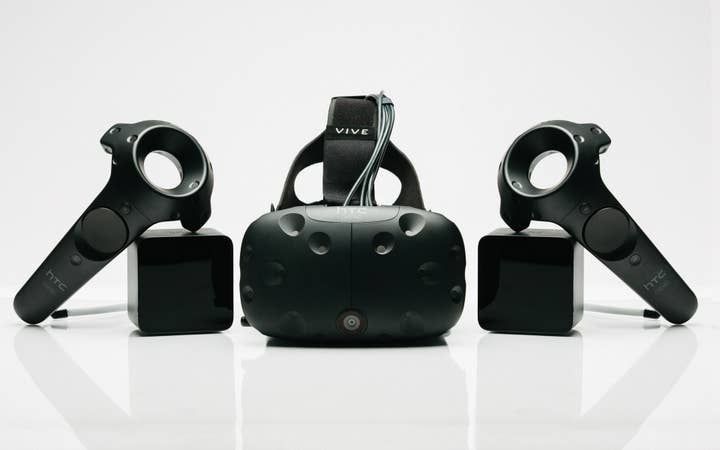HTC Vive drawing more interest than Oculus from devs - VRDC survey
Also, 78% of VR devs are saying no to exclusivity
In advance of the the Virtual Reality Developers Conference at the Park Central Hotel in San Francisco on November 2-3 this year, organizers have conducted a survey of over 500 professionals involved in the development of augmented or virtual reality games and experiences to gain further insight into the burgeoning VR/AR field and how those making the games feel about the market currently. Interestingly, while Oculus Rift helped to put a spotlight on VR initially (especially with its $2 billion acquisition by Facebook), more developers are working on HTC Vive right now than Oculus Rift and that pattern holds true in terms of which platform they're targeting next.
The survey found that Rift and Vive are neck-and-neck for current development efforts - Vive commands 48.6% compared to Rift's 43.2% - but when it comes to their next title, 34.6% said they're choosing Vive compared to 23.4% for Rift. It should be noted, however, that "a large number of respondents skipped answering this question, which may suggest that many VR/AR developers aren't confident about where their next project will be or even if it will be at all, given that this question did not include the option to respond with 'Other' or 'None'," the report stated.
Google also appears to be gaining in popularity thanks to low-cost options like Cardboard. 14% of developers said they're putting their next title on Cardboard compared to just 10.3% for Gear VR. Furthermore, for current development initiatives, 29.16 percent said they were currently developing something for Cardboard and another 14.58 percent said they were developing for Google's more powerful mobile-powered VR platform Daydream.
If you're wondering where Sony's PlayStation VR stands in all of this, only 12.9% of developers are currently working on the platform, possibly because it's not yet been released, and an even smaller 3.7% said that their next title would be for PSVR. That being said, it's also important to note that 78.1% of developers surveyed said that their next VR title would not be exclusive to any platform. As Oculus Head of Content Jason Rubin explained to us back at E3, his company's exclusive deals are helping to fund some VR titles that may not have been made without the financial assistance, but from an installed base perspective, naturally targeting more platforms makes sense for those developers who have the capability to do so.
And in fact, the VRDC report points out that the vast majority of funding for VR games is coming straight from the developers themselves. 49.7% are using personal funds, 33.4% are using existing company funds, while funding from clients (16.7%), angel investors (13.3%), venture capital (10.6%) or external publishers (4.7%) were all less popular methods of financing.
Developers were also asked about obstacles to growth for the market and cited the usual price and nausea complaints. "Price. If a family of 4 has to shell out $4K to play one game together, you're not going to get widespread adoption," wrote one respondent. "Cost. Bringing the price down low enough that more people can afford a quality HMD will be a big hurdle," wrote another. "Products like PSVR is a move in the right direction."
Immersive locomotion not yet being fully solved and the fact that there are no major "killer apps" just yet could be problems as well, developers said. Even so, developers are encouraged by the early content that's out there. Neat Corporation's stealth action game Budget Cuts was cited as was Google's Tilt Brush. Developers appear to be getting excited by the possibilities Microsoft's HoloLens could afford them too.
"We haven't really seen too much from AR, but the things I've been seeing Microsoft's HoloLens being developed to do has been pretty crazy," wrote one respondent. "Everything from architectural design to virtual walkthroughs of things such as when buying a place to live or looking at a car and so forth is going to be really awesome. I would also imagine that we will be able to use AR to look inside the human body, for instance, to provide a better learning experience for students and health professionals alike."
"The most innovative AR tech I have seen is the Microsoft HoloLens," wrote another. "It is making great progress in terms of marker-less tracking and compositing elements into the world."

